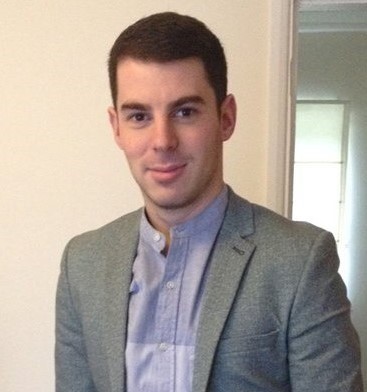
November 7, 2018, by lzzeb
A day in the life of an Economic Geographer…..Joe Hewitt
A blog by Dr Joe Hewitt
I am a Teaching Associate in Economic Geography here at the School of Geography and am fairly new to this role having joined as a staff member in September 2018 after obtaining my PhD in Human Geography from the University of Nottingham earlier this year. My most recent research has focused on two areas, access to financial services for low income groups, both in developed and developing countries, and the sustained use of improved cooking technologies in the Global South. I’ve worked closely with other academic staff in the department in these endeavours and it is pleasing to be able to talk about some of my experiences in research with students across many of the modules I provide teaching support.
My position as a Teaching Associate lies somewhere between a PhD student and an established lecturer, and as such I’m a staff member that can be called upon to assist other colleagues in the delivery across a range of modules. A typical day for me in the school is very much dependent on the time of the term, as I am fortunate to provide teaching support across of variety of modules, including Environment, Development and Livelihoods, Geographies of Money and Finance, Economic Geography, Geographies of Migration and Tutorials. Therefore some periods are characterised by increased numbers of seminars and small-group teaching sessions whilst others tend to focus on marking and feedback provision. This variety, albeit only recently experienced, is something I enjoy about this position and it’s great to work beside and connect with interesting academics and students across the school on a regular basis.
A big part of my role is time spent working as a personal tutor as part of the Tutorials module. I have around 20 first year students with whom I meet with in small groups every fortnight, with sessions – particularly in the first semester – based around some of the key skills required to be successful at undergraduate level, including how to structure essays, identifying relevant academic sources and referencing. I also meet my undergraduate tutees across all three years for one-to-one progress reviews sessions at the start of the semester to discuss their growth as part of the course. Additionally it’s not uncommon for tutees to come and knock on my door wanting to talk about a range of academic and pastoral issues in my remit as a personal tutor.
Like many jobs of all kinds, a fair proportion of my time is spent communicating with colleagues (be them academic, support staff or students) around a variety of issues, ranging from seminar preparation to student support, professional development to room bookings. Having only recently seen ‘behind the curtain’ of academic administration, it is amazing to witness the number of processes and the depth of preparation undertaken by those in the School to ensure the smooth running of programmes and courses. Organisation aside, next up for me is the first batch of marking for the academic year – formative essays from my first year tutees – before preparing for upcoming seminars on population growth and resource management with 3rd year students on the Environment, Development and Livelihoods module, which always provoke interesting and varied debates.
No comments yet, fill out a comment to be the first

Leave a Reply